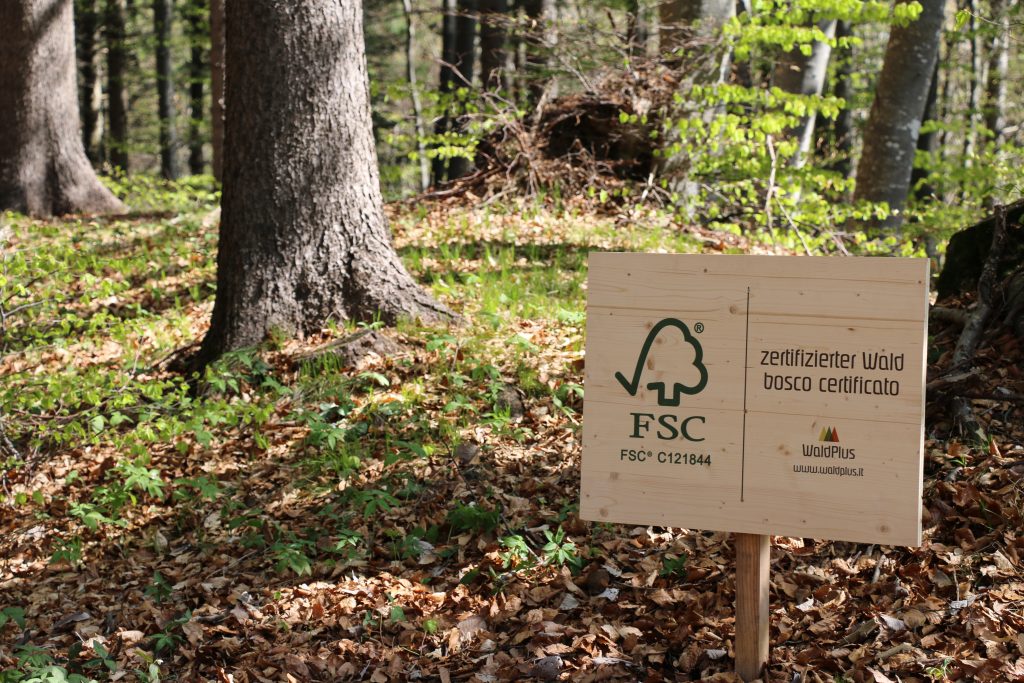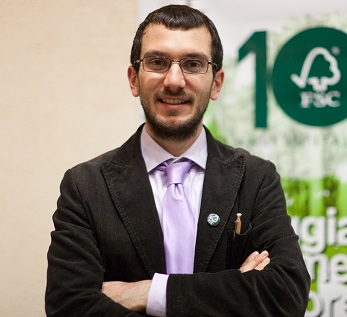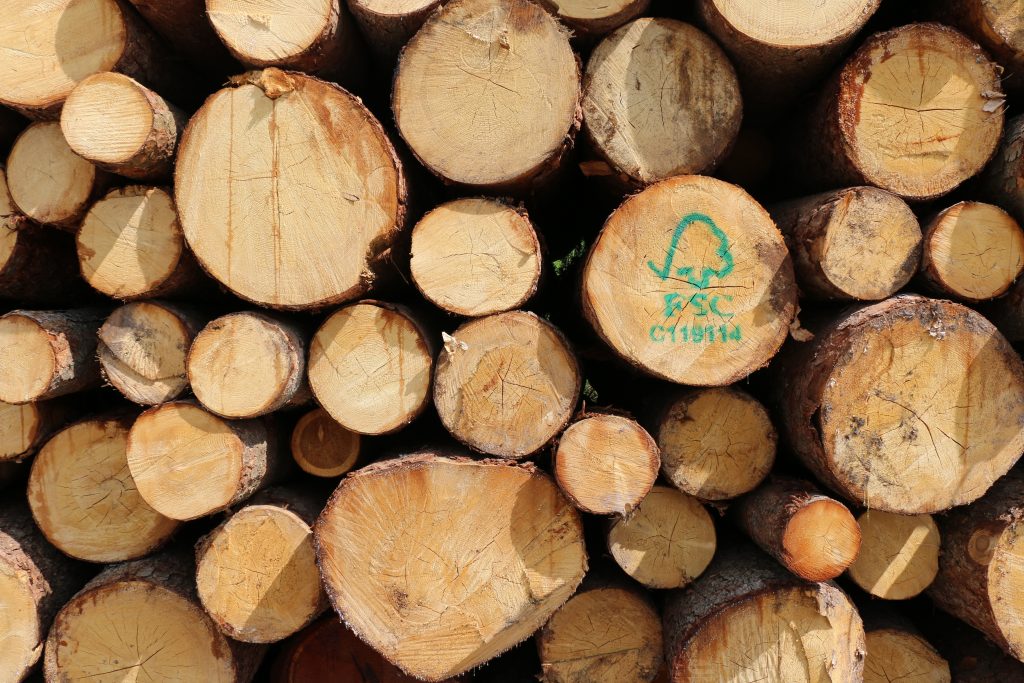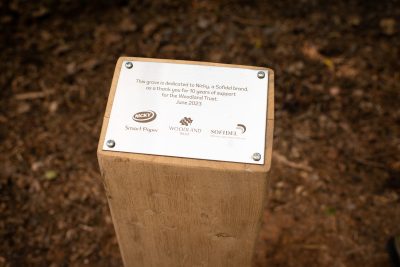Forest preservation is key for human lives, animal habitats and keeping global warming in check, but deforestation is still happening at an alarming rate. Consumers may have more power to safeguard forests than previously thought, Diego Florian, director of FSC Italy, tells Future
Forests, after oceans, are the largest storehouses of carbon and their health is essential in keeping global warming in check. More fundamentally, they are vital for human life, from the air we breathe to the wood we use, and the myriad of products derived from that wood. Forest degradation has been happening at an alarming rate for years, with the World Wildlife Fund (WWF) finding that two-thirds of global forest cover loss is occurring mainly in the tropics and sub-tropics. Between 2004-2017, more than 43 million hectares of forests were lost.
At the same time, consumers are becoming increasingly conscious of the products that they buy, with many only supporting environmentally conscious brands. Globally, 85% of consumers said they’ve started purchasing more sustainable options in the last five years, according to the Global Sustainability Study 2021 from consulting firm Simon-Kutcher & Partners. Younger generations are even more likely to have shifted behavior, the study found.
To safeguard human lives and the planet in the future, policymakers, manufacturers and individuals need to take action to ensure that forests are protected, and our scarce resources are used responsibly. Governments have been slow to take appropriate action, and third-party actors and non-governmental organizations are now stepping in to ensure forests are protected. One of these organizations is the Forest Stewardship Council (FSC), which is setting the standard for responsible forestry worldwide. The organization provides certifications that can be found on millions of products and is a trusted mark of sustainable forestry.
It is partnering with organizations, such as tissue paper producer Sofidel, to help them procure products more sustainably and ensure value chains are environmentally friendly. We spoke with Diego Florian, the director of FSC Italy, to learn more about the FSC, its work, challenges it has encountered, and how the industry is changing.
What are the overall aims of the FSC worldwide? What is the organization hoping to achieve?
Diego Florian: The global strategy for 2021-2026, published last year, aims generally to protect resilient forests that sustain life and recognize the value of forests. More specifically, by 2030, the FSC aims to have 300 million hectares covered by FSC certification; 50 of those hectares should be in the tropical areas and within smallholder ownership.
“By 2030, the FSC aims to have 300 million hectares covered by FSC certification”
Diego Florian, FSC Italy
To do this, there are three main strategies that will be implemented: transforming the market of forest products and pushing for more FSC products in that market; catalyzing the change to move from business as usual to more responsible forestry for companies as they shift to more responsible procurement and production; creating solutions and tools to be deployed by FSC that can be offered to members. The dialogue between dedicated full-time staff and members has to be the base for frameworks developed for taking decisions and implementing solutions.
How does FSC Italy take those overall values and implement them across the board?
Diego Florian: We are one of the key countries in terms of market transformation, thanks to the high number of processing companies within the different value chains in Italy. We have many chain of custody certificate holders here, meaning companies that are between the forest and the finished product.
We’re second in the world in terms of this, and first in Europe for belonging to the most diverse value chains from traditional wood, wood processing, and timber production to furniture production, to all the kinds of paper products, from tissue paper for hygienic, domestic and away-from-home use, to copy paper to printing to press, and we also work in packaging. We are asked to react very quickly, very professionally to a very demanding market.
But there are other areas we can contribute, like ecosystem services conservation within the certified forest, and therefore maintain and conserve natural services we get from those areas such as clean water, CO2 stocks and biodiversity.

What are some of the primary challenges that your organization faces?
Diego Florian: It’s about alignment on standards and alignment on FSC requirements, rather than specifically on the implementation side, but it’s more in supporting the objectives of operators. In facts, forests and related markets are constantly changing; the challenge is to keep up with new regulations, constraints and scenarios.
The biggest challenge for us is to be able to adapt our services and our activities to a diversified market. Developing effective initiatives for promoting the knowledge of FSC and FSC products is something that only a few operators do. Only a few companies will combine product certified production with product promotion. Our role is to sustain and support the market development, the consumers’ commitment and awareness with specific messages, campaigns, or projects.
“The biggest challenge for us is to be able to adapt our services and our activities to a diversified market”
Diego Florian, FSC Italy
Can you tell us why the topic of a forestry certification is such a vital one right now, and how ultimately certification is helping towards forest management and natural services conservation?
Diego Florian: Forests are inextricably linked to the major issues of our present: climate change, sustainable production and consumption, creation of resilient communities.
So, the primary goal for FSC is to ensure to consumers, stakeholders, and policymakers that a specific kind of forest management system is going to safeguard the forest and ensure that its management is sustainable within environmental, economic, and social frameworks.
To do so, you need to use frameworks that are well recognized and trusted globally. FSC certification sets rules that are rigorous but can be communicated simply to stakeholders. Citizens and consumers are now more heavily relying on commitments from companies and the use of third-party verification, rather than relying on governments, to ensure that products are delivered sustainably.
On partnerships, why do the collaborations with Sofidel and the WWF in Italy work?
Diego Florian: Sofidel is now an international member of FSC and national member of FSC Italy. Through the partnership between Sofidel and WWF, Sofidel decided to commit more to sustainable procurement, and to commit more to selecting the supply coming primarily from FSC-certified sources. Sofidel has asked FSC Italy to help them communicate better their choices and develop consumer content, and we’re happy to do this. It’s our mandate. We hope it will continue also in the future.
What does the future of forestry certification look like?
Diego Florian: The pandemic has been dramatic leverage for the demand of FSC-certified products, especially in the packaging sector. The demand for sustainable products, whether finished products or intermediate products, is growing. And I believe that this will reflect in a robust growth in terms of forest certification, or there will be also a growth in terms of FSC certification where FSC is talking more and more about the circular economy.
There are external factors to consider as well, including the high rates of deforestation recorded in the world and, lately, the conflict in Eastern Europe that is limiting the possibility for FSC to remain a reference in Russia . And so, this will affect the growth of the certified areas.
Policies within the European Green Deal framework are moving in the same direction as the FSC because the European Union is requiring more and more impact-free or deforestation-free forest products. So, the European Union is raising the bar and we are following these processes very closely.
What obstacles still remain?
Diego Florian: There are challenges outside of the system that we will try to cope with and still be on the front line, no matter. It’s not only consumers who are realizing the value with this kind of certification. Retailers and brands are also recognizing the value.
We have a growing number of companies – not only certified companies, but general operational companies – that want to invest in forestry as a tool to be more committed to preserving life on earth and to preventing the death of our forests. In this, certification may not be enough; instead, we need policies that favor this type of investments, or reward companies and individuals who want to engage in this type of path.
Finally, it is increasingly necessary to rely on tools that allow to distinguish those that are virtuous practices, verifiable and quantifiable in their impacts, from superficial and empty ones that lead to greenwashing.
Further details:
For more information on FSC International, please visit https://fsc.org/en







